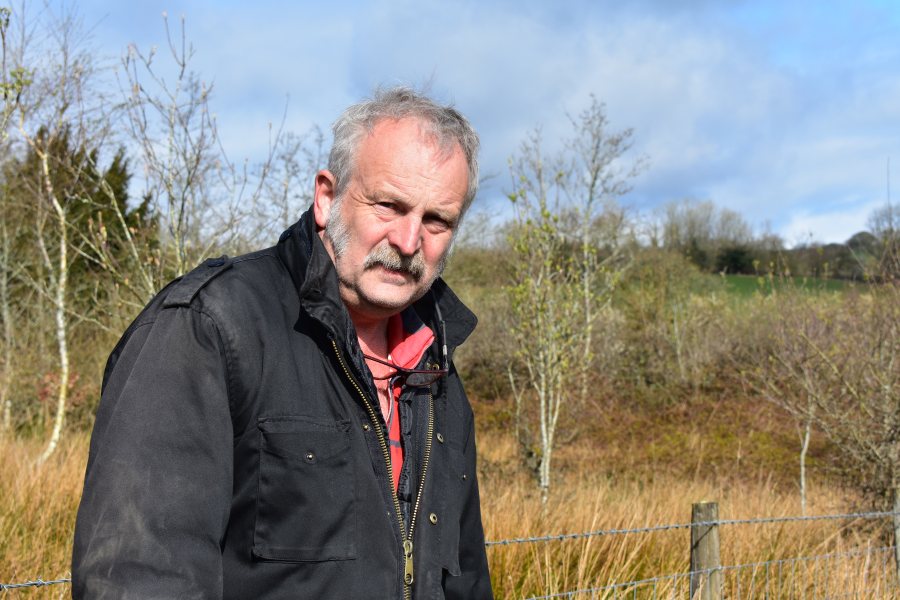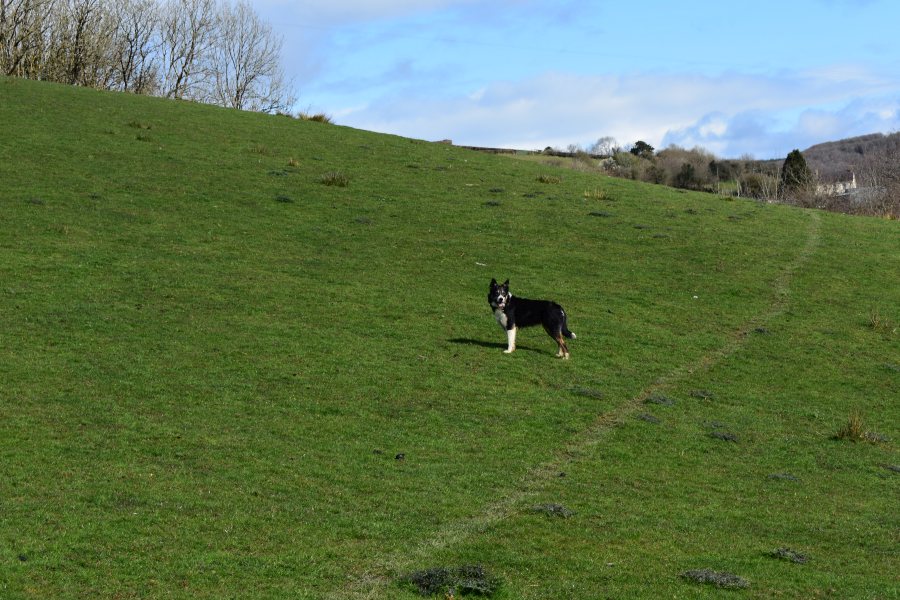
An organic farmer in Wales has highlighted how small-scale producers like him are looking after the environment while producing sustainable food.
Set in the Gwili valley in Carmarthenshire is Clyttie Cochion, a 150-acre organic farm home to Phil Jones and 350 sheep.
A part time lecturer, Phil cares deeply about educating the next generation - not just those he teaches but the consumers who have concerns about how food is produced.
Phil said: “Many misconceptions remain about the impact farming has on the environment and often people are confused about farming styles in other parts of the world and here at home.
"It is not universally true that farmers are polluting and destroying the environment. We have an easy care approach to shepherding and an easy care approach to the care of the ground as well.
"We only take from the ground what the ground will give us and that’s not a bad thing,” Phil explained.
Understanding the soil, weather patterns and topography are just as important in farming as livestock husbandry.
Although this holding is classed as a lowland farm, at 350 feet, the environment is more akin to a hill landscape with desolated rush covered ground and a few sheep.
This presents challenges for Phil as he wants to ensure his land and the animals flourish.
To feed the sheep, which are kept outdoors all year round, good grass cover and healthy soil are essential. The rush cover makes things difficult.
“Ideally I’d have a break of brassica before we go into grass but because of the wet winter there would be bare ground, resulting in soil erosion," he said.
"I therefore turn the ground in July, so that we have a good reseed established in August. With heavier weather and rain from September onward we won’t have bare ground and avoid soil erosion. Topsoil is gold dust.
"It has taken millions of years to be created and it can be washed away in one heavy storm in October; so we’ve got to be really careful custodians of our top soils.
"We go for long term leys and hopefully they will serve me well. If we manage them properly they should last,” Phil explained.
When it comes to dealing with rushes, a plant that thrives in wet conditions and offers little nutritional benefit as fodder or soil health, Phil knows he can’t turn back up the ground, which is heavy clay with a lighter clay loam topsoil, because it would be turning up millions of unwanted rush seeds.
“I’m hoping by ploughing there will be fewer rush seeds being turned up and that’s why I really need to look after what I’ve got," he added.
"If we have to do further reseeding in the future we’ll have to think of surface cultivating, otherwise we’ll create problems for ourselves.
"Until the dry phase kicks in and the whole environment here is different, the rush will be a problem that we must keep on top of."
One thing is clear - if it weren’t for farmers of the ground like Phil, the land would be rush infested, making it an ecological mess and unsuitable for feeding his sheep.
“There aren’t many, if any, environmentalists that would condone a stand of pure rush or bracken," he said.

"It is not good because they dominate the soil and there is no opportunity for anything else to emerge at all."
Phil explained: "We therefore manage the land in a way that ensures we have a healthy ecosystem.
"The sheep we keep here are also not exploitative, we don’t have to take lots of cuts of silage to keep them fed over winter.
"By not taking lots of cuts of silage we ensure our potash levels are fine and the ground is healthy. I reckon our carbon footprint has to be quite low. It is about as sustainable as it can be."
To further improve the land and create unique habitats, Phil has planted 8 acres of Alder woodland.
“The ground we used for tree planting was too wet to get on and we found ourselves in the position of having a serious rush infestation," he said.
"We couldn't cut it during the summer months because it never got dry and there was no incentive for livestock to go in there.
"Now the ground is doing something really useful. We’ve planted mainly Alder because it copes very well with wet ground. Before it wasn’t very environmentally valuable.
"Now with trees in it, the land will dry out and there is a far greater variety of species in there now, that would not have survived in the pure rush stand,” he explained.
He is clear however that woodland creation must be done in a sensible way: “You can’t plant trees anywhere you like.
"It has to make sense for the ground, the farming system and we must consider the types of trees planted as well. Above all we must keep sustainable food production in mind.”
Most in the Welsh farming industry understands that carbon footprints need to be examined and that everyone has a role to play in reducing it.
Indeed, small family farm like Clyttie Cochion are leading the way when it comes to being environmentally friendly.
They are also responsible for a critical carbon resource in soils, woodland and semi-natural habitats.
Phil said: “We all have to do our bit, there is no question about it. I try to manage this place almost as my dad did - keeping it small.
"And we know that many green recovery proposals suggest reduced stocking levels.
“However, numerous studies have documented that if we reduce grazing animals, we have a negative impact on vegetation structure.
"That then can result in adverse impacts for bird species such as the golden plover and curlew.
"Moreover, research has shown that reductions in sheep numbers are associated with declines in both golden plover and wheatear numbers.
"A more recent study found that trebling sheep numbers led to the largest increase in species diversity on hill land in comparison to the removal of livestock."
Phil therefore doesn’t want to see a reduction in his sheep numbers: “I need to keep my stocking levels at the current rate.
"This is as sustainable a system as we can run, especially as our stocking rate is probably no more than 3 ewes to the acre.
"That’s not sustainable in financial terms but as for what the ground can carry it is."
Phil added: “I would say you’d have to take a very selective view of our industry and this world if you were to come to the conclusion that our family farms in Wales are bad for the environment."
